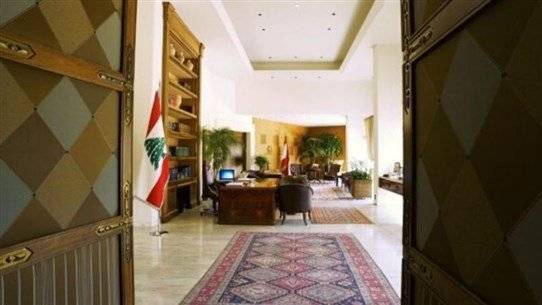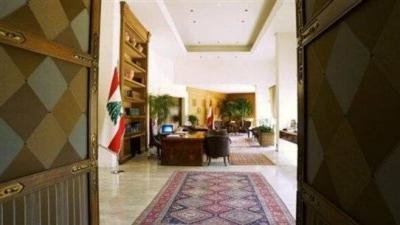From Paris to New York, the essence of Western advice is the same in urging Lebanon to take the presidential elections seriously. The Western gaze on the internal situation will not remain vigilant in light of the world's preoccupation with its own economic problems. Today, first, second, and third world countries are focused on the new Ukrainian-Russian turning point, drowning in details of searching for and securing certainties that were once taken for granted, such as wheat, corn oil, fuel, gas, electricity, and heating. This is the real political pulse of the ongoing international deliberations. What it means for Lebanon is that while world capitals are busy searching for solutions to crises that seemed unimportant for years, there are those urging it to stabilize its conditions early, so as not to add more complications to its problems during a time when everyone is turning away from it.
The tripartite statement issued from New York, with its aspects related to elections, the implementation of the Taif Agreement, and international resolutions, is not isolated from the course taken by French President Emmanuel Macron's visit to Riyadh, Crown Prince Mohammed bin Salman’s visit to Paris, and finally French-Saudi meetings and the tour of Saudi Ambassador in Beirut, Walid Bukhari. The reaction remains the same towards the Lebanese situation, coupled with an American umbrella for a French role that has seemed to step back recently, especially after open lines of communication with Hezbollah, which Washington did not look upon favorably, affirming previous insights about France backing Saudi Arabia’s engagement in the Lebanese file. However, the Ukrainian crisis and developments in Iraq have increased elements of Western and regional concern, placing the Lebanese file within a danger zone.
Advice continues to be given to Lebanon, as was the case before the parliamentary elections, stressing the necessity of holding presidential elections and forming a government, rather than replacing the presidency with normalization steps. This message, voiced publicly in New York, is the same that has been conveyed from Paris to Beirut in various diplomatic meetings and contacts. The intense pressures to hold parliamentary elections are now being repeated, despite the differences between the two electoral processes. But the essence of the operation is the same for the concerned countries that monitor Beirut closely. Lebanon is objectively faced with a bundle of intractable problems and needs assistance from these countries to navigate through, whether regarding border demarcation, gas transportation, or negotiations with the IMF, among other complex issues. Internally, it also needs a phase of calming down to address its daily living conditions.
Electing a president does not mean that all these crises will be solved quickly, but at least it will not add a new problem to the existing ones, and it will reduce the anticipated internal clashes and allow some life to return to the internal situation. Although external pressure does not go beyond supporting the principle of forming a government, it interacts with the ongoing attempts and swift steps towards its formation as an implicit recognition in the final days before the end of the current term that there will be no presidential elections. This concession increases the confusions generated by the possibility that this vacuum period could extend longer this time, in light of the region's and the world's crises, which no one predicts can be resolved soon. As much as the government is significant and internal forces are urging its emergence into the light, the option of electing a president remains distant. This is a concerning element, as elections do not occur according to a natural calendar, but rather amidst internal political clashes and pressing deadlines.
In this context, the translation of Western messages depends on two parties: Hezbollah and the opposition. Hezbollah, in the most delicate moments, seems to be sending messages towards a president to be agreed upon, for the first time without resorting to a candidate from a party, as was the case since the term of President Michel Sleiman ended. The breakthroughs in the border demarcation file and the green light for government formation could be assisting factors in the party's path towards continuing to normalize the internal situation while keeping an eye on several hot points in the region. The international trio's pressure, despite the party's public objection to it as "foreign interference," might find an outlet through Paris and its messages to the party, intersecting on the prospects of salvaging the electoral deadline with minimal damage.
As for the opposition, they are fundamentally divided in their approach to the electoral entitlement, in terms of vision, role, and name, and in their handling of the tripartite statement and external initiatives from Saudi Arabia to Washington and Paris with equal consideration, attention, and even support. This hinders progress towards an effective dialogue area even among themselves, before engaging Hezbollah and its allies to formulate a consensus initiative on a presidential name that the international community could endorse. However, time is no longer available for them to continue playing on the edge of steps that might lead to contradictory options, delaying local agreements, while the international community presses seriously for accelerating the steps needed to elect a new president.




